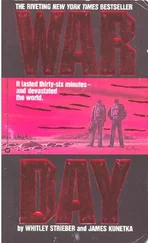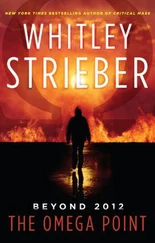He had waited until the light was leaving the sky to come out here. This time of year, the sun hung low in the west by four, and he hoped nobody would chance to look up and see the figure on the roofline installing an antenna.
When the transmitter was up and running, he got off the roof, sliding badly at one point, so far he thought he’d go over the edge. But he caught himself in time.
Even back inside the structure itself, it was frigid. Also dusty. He coughed a little, and held a handkerchief to his face. Leaving the conveyor running overnight had been more effective than he’d thought possible. He was in a haze of dust, and since the temperature wasn’t much above ten at the moment, the humidity would be effectively zero. He should have picked up a face mask at some hardware store. Well, he hadn’t, so he’d just have to live with it.
He hoped that nobody would make the Volvo. As far as satellite surveillance was concerned, they had probably located his cell phone by now, so they’d be certain he was here.
He wished he believed that this was all going as well as it seemed, but he had been dealing with the grays for too long to be anything but extremely uneasy about doing something they did not want done. If they’d been more open in their opposition, he would perhaps have felt better. This way, he could not know where he stood.
ACROSS TOWN, HIS FIRST LITTLE experiment came to fruition. Gene Ralph Petersen had run Petersen Texaco for thirty-one years, and his dad had run it before him. Before it was a garage, it had been Petersen-Michaelson, a stage stop, livery stable, and smithie. Just now, Gene was in the kitchen of his house behind the station. He was rustling up some coffee and fried ham. Ben, his dog, paced nervously. “You want out again, guy, in all that snow? It’s ten degrees out there.”
Ben stared at him, stared so hard that he stopped what he was doing and stared back. “Ben? Boy?” Was the dog having some kind of a fit? “Hey, Ben!”
When Gene took a step toward his dog, its lips lifted, it let out a window-rattling growl and it leaped at its master like a wolf leaping at a fawn.
Gene was not in any kind of shape at all, and he fell back against the stove, his arms windmilling. He hit the frying pan and the ham flew up in a mess of scalding grease, and he felt fire searing his back as the dog came at his throat.
Like a volcano that had been building pressure, Gene erupted. He grabbed the hot frying pan and slammed Ben with it, but Ben was filled with unstoppable rage, and got a piece of his neck and shoulder before he beat him off.
Screaming, his own teeth bared, he lunged at the dog, and the two of them went down fighting.
They fought and blood flew, and fingers were torn off, and the dog’s muzzle was shattered with the skillet, but finally the dog won. Gene lay on the floor, his eyes glazed, his face gray. Ben, his companion of fifteen happy years, bent down and pressed his bloody muzzle into the face of the master he had adored, and ripped it to pieces.
PART NINE
A Child Is Dying
Because I could not stop for Death—
He kindly stopped for me—
The Carriage held but just Ourselves—
And Immortality.
—EMILY DICKINSON “Because I Could Not Stop for Death”
TWENTY-FIVE-THOUSAND MILES OVERHEAD, an event that would have riveted the attention of every man, woman, and child on Earth—had they known—was taking place. A large and complex satellite, totally black but visible in the brutal light of the sun, was approached by a small, egg-shaped object. This object shone silver, but it was not what it appeared to be at all, a small spacecraft. It shimmered as it approached the satellite, changing into another, much more complex shape. This swung around the satellite and fitted itself neatly over the end that pointed toward Earth.
Inside the satellite, relays sparked, and on its surface tiny rocket nozzles spat bursts of flame. The orientation of the satellite turned away from the snowy center of the United States and toward the line where the land ended, and the coastal waters of the Atlantic began. Then they turned it farther, out over the Atlantic, far from where it could do any harm.
The object released from the satellite became an oval once again, and darted away.
LEWIS CREW BREATHED HARDER THAN he would like, a lot harder. Earth’s air had just a half percentage point less oxygen than home, but that difference had a definite effect. Also, his lungs were not accustomed to the pollution here, and they had been deteriorating for years. Now they boiled and bubbled when he ran. He knew that Wilkes had come in here within the past half hour, the kids in the Mountain had called him and confirmed that. Wilkes’s car had been identified as a rented Volvo early this morning, and located via satellite ten minutes later. Since that moment, his every move had been tracked.
But why in the world was the man in a grain elevator? Crew had tried to understand but he did not understand, and that frightened him badly. He stood gasping, watching Wilkes climbing down a catwalk from far above.
Still trying to catch his breath, Crew squatted, tightening the muscles in his legs and back, concentrating his energy into his solar plexus—then let go, springing up, the wind rushing past his face, leaping at Wilkes.
He grabbed the catwalk, felt it shake, heard it clatter. Wilkes stared from the far end, wary, ready…
And then he shook the catwalk violently. A wave came down it, causing it to collapse under Crew’s feet. He tumbled through the air and hit on his back. The catwalk wouldn’t have collapsed like that unless Wilkes had done something to it. It had been a booby-trap and Crew had fallen for it. Wilkes jumped lightly down.
They had been sixty feet apart, one as ready as the other. Now they were thirty feet apart and Crew was on his back, struggling to catch the wind that had been knocked out of him.
Wilkes straddled him. Crew thrust himself to one side and rolled out from under his feet. Wilkes stumbled and shook his head—and moved off, disappearing into the murk of dust that filled the huge chamber.
Crew peered after him. This was a catastrophe. He prepared to be shot. He had lost. He took the warrior’s posture, legs apart, ready. He peered into the dust, tried to listen over the maddening clatter of the conveyor.
Strangely, Wilkes didn’t shoot. But why not? He was alone here. Had Mike not realized that?
“Okay, men,” Crew said just loudly enough so that he would be sure that Wilkes heard him. “If I go down, fire into the flash.”
To his left were the four huge storage vats, each fifty feet high with a diameter of thirty feet. To his right and soaring overhead was the elevator itself, an enormous contraption of pulleys and chains driving the bucket conveyor, which rose to a height of about seventy feet, and could be directed into each of the storage vats. Farther off in that direction was a locked office that contained the elevator’s controls. The conveyor was running. Why was not clear.
Slowly, Crew began turning around. If Wilkes didn’t act, he would head for the door he had come in. The dust would conceal him, too. He was fast, he might make it.
He went deeper into the way of the warrior, gathering his energy along his spine. He had a small pistol in his side pocket, but the grain elevator had been a clever choice, given that he couldn’t see four feet in front of him.
Mike must realize that the longer he delayed, the greater Crew’s chance of escaping.
Then he saw him, and not two yards away. Wilkes’s eyes were baleful, sparkling, rock steady.
Crew leaped at him, extending a powerful punch as he did so. Mike took it in the face and lurched back. But he righted himself, and before Crew realized what was happening, Wilkes’s hands slid around his neck. His fingers felt like steel cables, crushing into his neck, making his head pound, pinching off his breath. He sucked as much air as he could manage, and then his windpipe was closed. Wilkes must have seen him gasping. He had targeted this weakness.
Читать дальше












